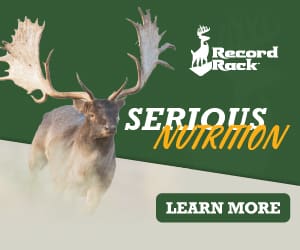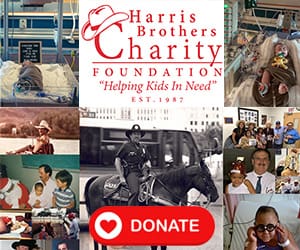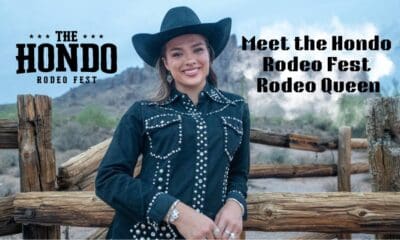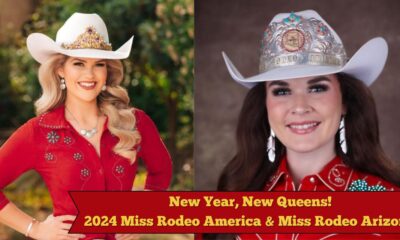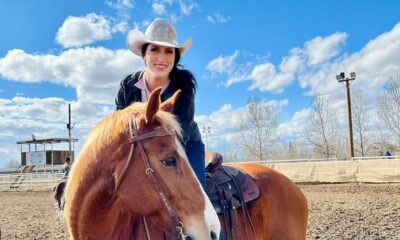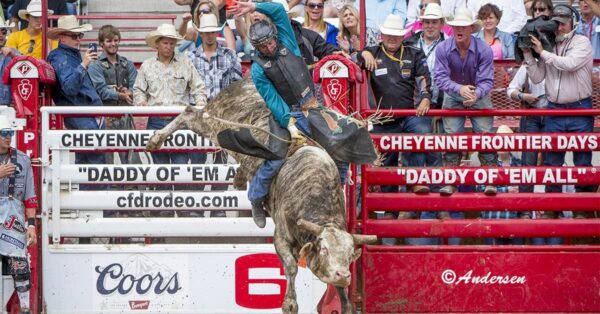Katherine Merck has worked just about every job in rodeo and shares her journey of going from Miss Rodeo America to entrepreneur and lawyer.
Katherine Merck is an agricultural lawyer, consultant/coach, entrepreneur, speaker, PRCA timer/secretary, and Miss Rodeo America 2016. From Spokane, Washington, Merck graduated from the University of Notre Dame and Gonzaga University School of Law. She is licensed to practice law in Idaho, Montana, and Wyoming with a focus on property rights, tax and estate planning, local and federal government involvement, and other areas of law affecting ranchers, farmers, and other landowners. Her business, Rodeo Advantage, is a comprehensive rodeo consulting business serving rodeo committees, rodeo contestants, and rodeo queens. This past year in 2022, Merck was also selected to time the National Finals Steer Roping.
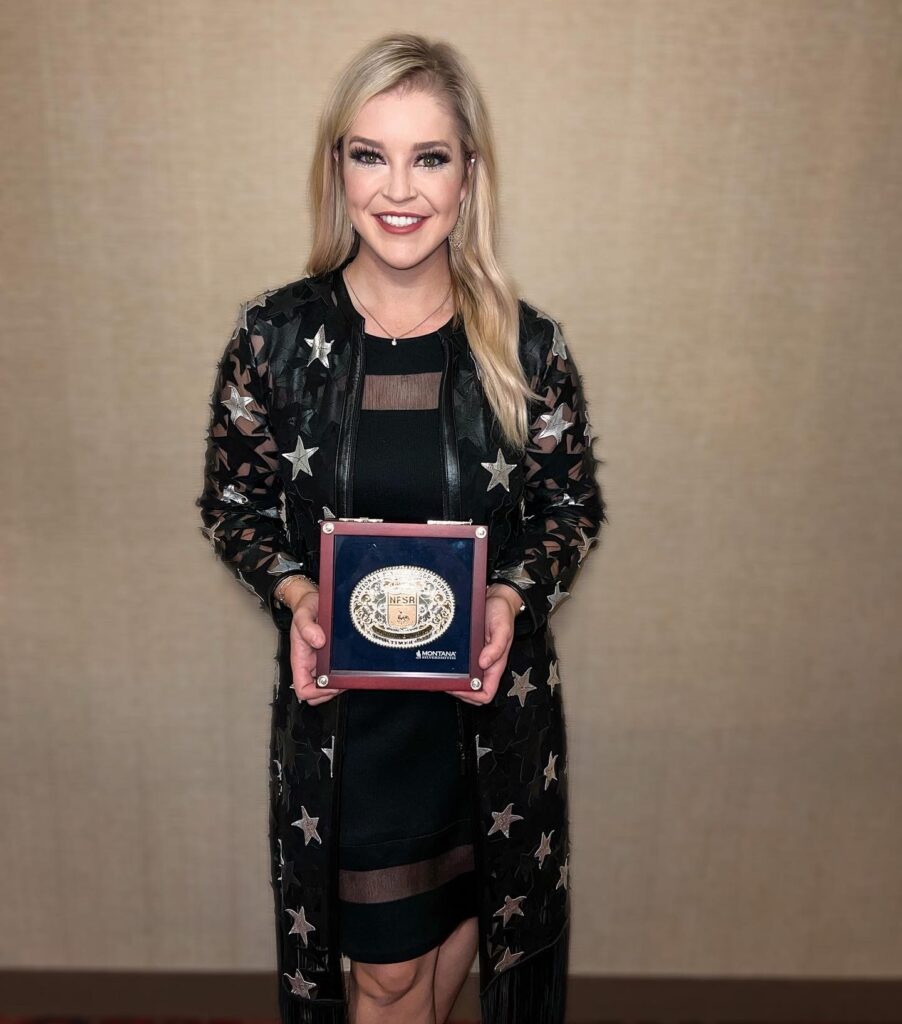
Hannah: Why did you decide to become a lawyer, and how has your experience in agriculture and the Western industry affected your career plans?
Katherine: I definitely feel like I have a nontraditional way in which I ended up deciding to become a lawyer. I am not the person who has wanted to be a lawyer since they were 12 years old. After college, I had a job lined up in New York and ended up having to have double jaw surgery, so I couldn’t take that job. Having my jaw wired shut gave me a lot of time to think about what I am good at, what I like to do, and how I can help people. That was when I decided to go to law school.
Where I grew up in Spokane, Washington, I’ve watched this agricultural area get more developed; and it is just exponential at this point. I recently went back to my high school this year for a distinguished alumni program, and my English teacher said, “Do you remember the paper you did in junior year on urban sprawl?” so, I’ve always kind of been interested in advocating for agriculture, especially when demographics are changing in an area. I didn’t grow up with horses but eventually, I got into horses and showed reining horses, and then I really got into rodeo after college by being a rodeo queen People don’t realize, but so much of being a rodeo queen in advocating for the entire western way of life, including the agricultural industry.
Then, I got a great opportunity when I was Miss Rodeo America to meet the Executive Vice President of the Wyoming Stock Growers Association when I was at Cheyenne Frontier Days, and he hired me as his legal intern the next summer. My law school essay was written based on the quote, ‘If you want peace, work for justice,’ and I think that’s a really important aspect of it. To me, agriculture is definitely not as powerfully represented as some other industries from the legal perspective, so I want to be that voice.
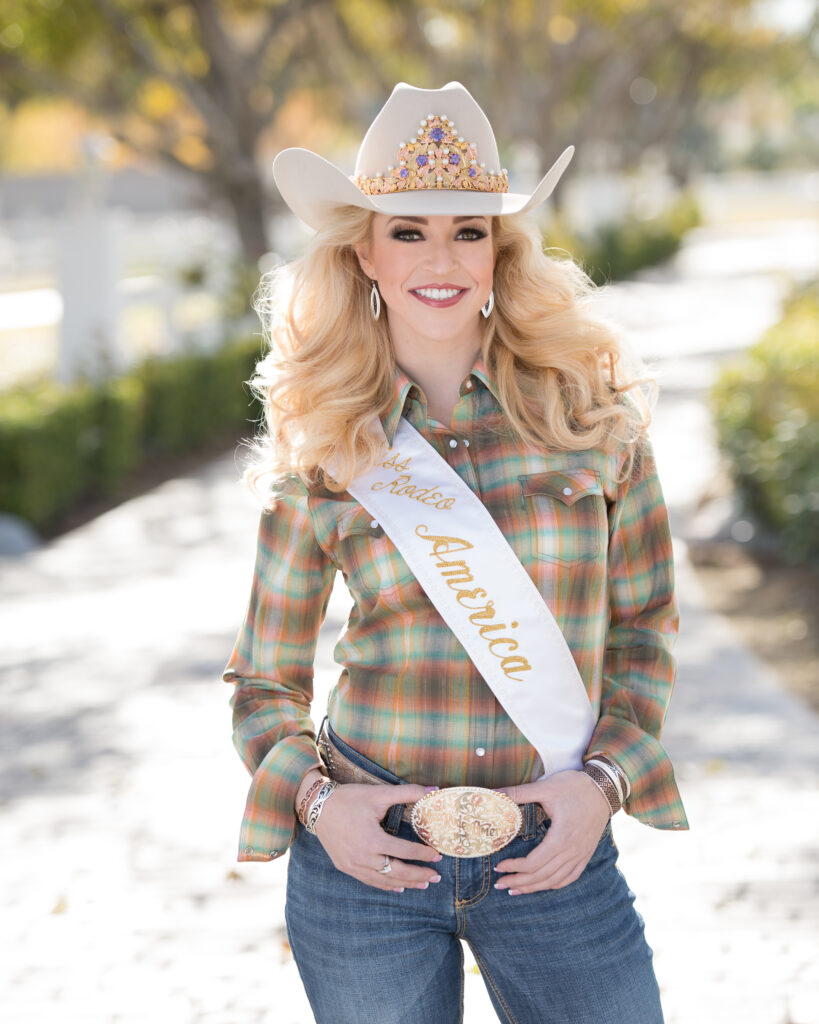
Hannah: What is your favorite part about working with farmers and ranchers?
Katherine: One of my favorite things about representing farmers and ranchers, especially on the estate planning side, is really getting to understand people’s families. Sometimes you’ll have parents that are so worried with two kids and so often things resolve themselves with the kids saying, “Well you know, this sister has always wanted to take over the farm and ranch and this brother has always wanted to live in town.” So that is really fun to me, just understanding the family dynamics and problem-solving to help create the desired result.

Hannah: Tell me about your experience as Miss Rodeo America.
Katherine: It was absolutely the experience of a lifetime, and I loved every second. My whole rodeo queen career was a total whirlwind. I won Miss Rodeo America less than two years after my very first pageant, so it was a lot of learning on the fly for me. I love interacting with people and having the opportunity to open up people’s eyes who might have no experience with agriculture or with rodeo because I was that little girl. I grew up in the city and didn’t have horses so when I was introduced to our world, I got to choose that. I got to turn around and be somebody that was able to introduce people, like me, to the western lifestyle. I like to joke that being Miss Rodeo America prepared me to be in court more than law school ever did.
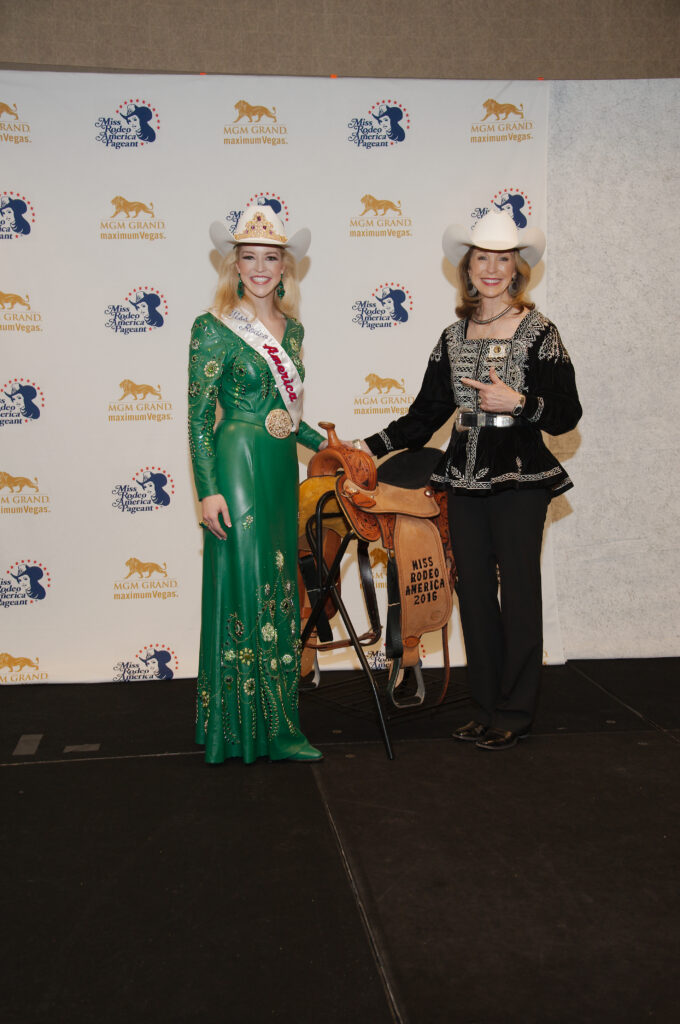
Hannah: Tell me about your consulting and coaching work with your business, Rodeo Advantage, and how you saw a need in the Western industry for that.
Katherine: A big part of it for me was that I didn’t really know what a rodeo queen was when I decided I wanted to be one, and there were very limited resources out there compared to other industries. I wanted to be that person who could provide guidance and resources that I wish I had. I’m now a PRCA timer and secretary, and I’ve had the opportunity to be part of rodeo production from many different perspectives. It’s really fun for me to be able to also help rodeos and contestants with everything from social media and sponsorships to production. If you couldn’t tell, my common thread is I love helping people.
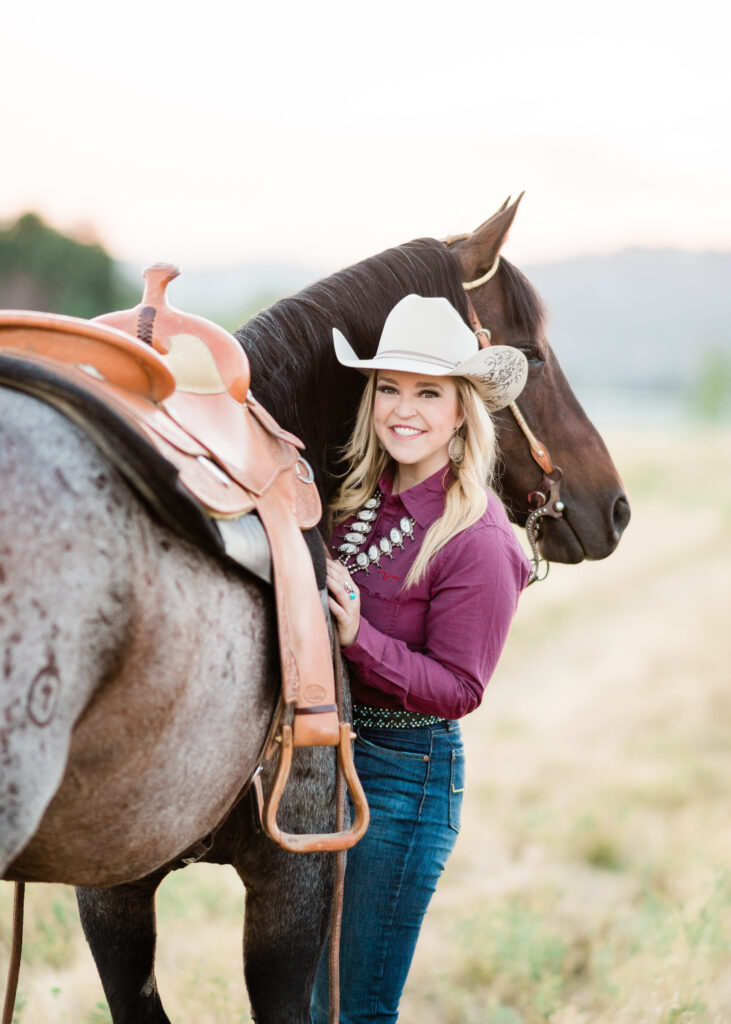
Hannah: When and why did you decide you wanted to be a timer and secretary in rodeo, and what was it like to be chosen to time the National Finals Steer Roping for the first time?
Katherine: The National Finals Steer Roping was a dream come true. When I was Miss Rodeo Washington, I was lucky enough to have great support from contract personnel. I think part of that goes back to not growing up in rodeo, so I was never ashamed to ask questions. I was constantly asking to shadow different people. Miss Rodeo America has a written test, and you need to know the rule book; so some of our Columbia River Circuit team decided, ‘We’re going to put you through the timer’s training.’
Once I was done being Miss Rodeo America, I had already been through the training and knew so much of the rule book, I figured I might as well put it to use. I’m not very good at being at a rodeo and not being useful, so that’s why I decided to do it. I fell in love with it, because I get to ensure that the contestants who have worked so hard, driven long hours and paid to be there have the fairest chance and that the integrity of the competition is always preserved.
My number one goal as a timer was to time the NFSR, and I hope to go back again. From there, I decided to secretary, because we don’t have as many secretaries in rodeo as we used to; and I wanted to get in there and learn from this incredible generation.
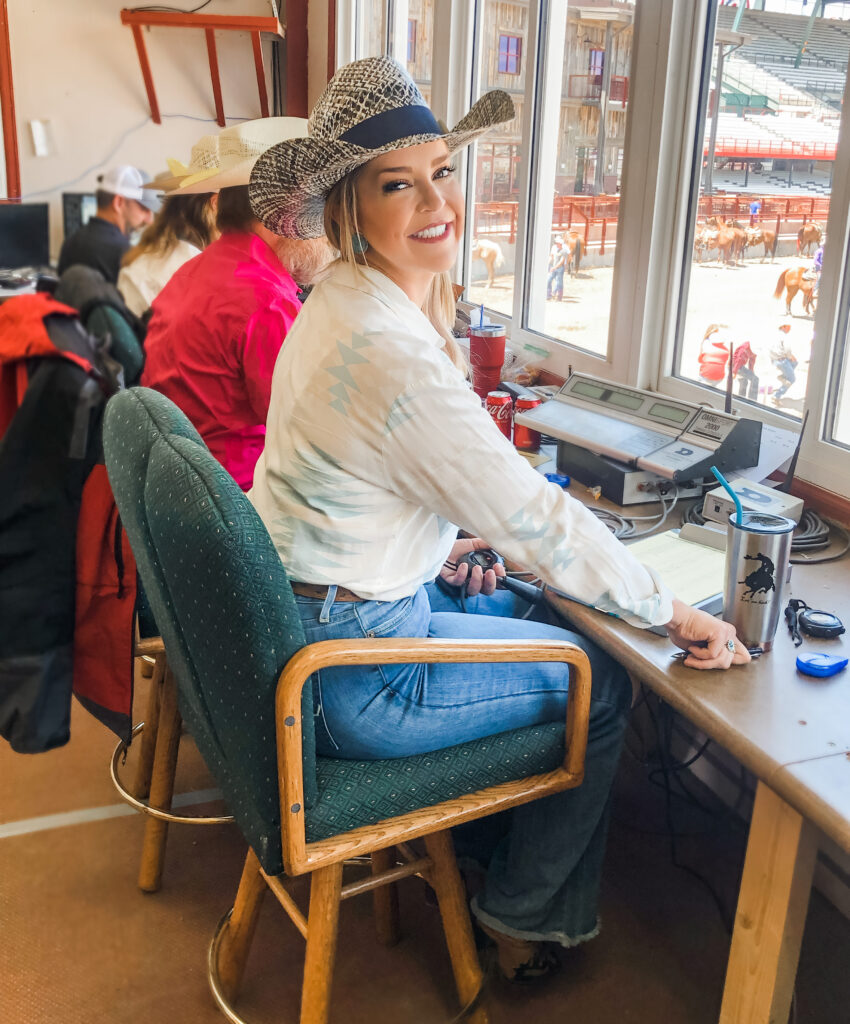
Hannah: How have you seen things in the industry grow, change and develop since you got involved?
Katherine: One thing that is really huge is rodeo has started to truly embrace technology. As silly as that sounds, it’s made a difference in everything from being able to stream rodeos to how contestants enter. The secretaries just got a big update in their technology, too. I think rodeo is really embracing it faster than we have in the past, and that’s a hugely positive move in the right direction.
Hannah: What are some of the biggest challenges you see in the industry, and what do you think those of us in the industry should be doing to address those issues?
Katherine: The number one challenge, in my opinion with agriculture and rodeo, stems from a lack of education and advocacy to the greater community. I think we should constantly be saying, “Hey, this is what actually happens in rodeo.”, “This is how we train our animals and feed them before ourselves,” or “During Covid lockdown, there were no fewer cows but there was less transportation, and carbon emissions plummeted.” We can’t be afraid to speak up and share the facts, because there is so much misinformation out there.
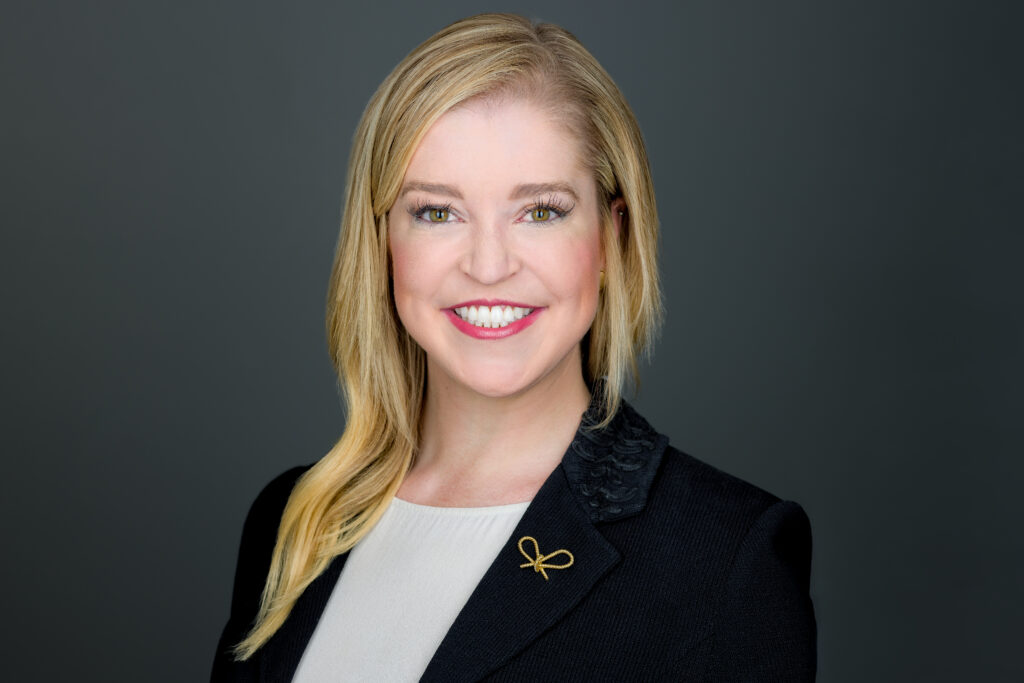
Hannah: What is your favorite thing about working in the western industry, and what is your least favorite thing?
Katherine: With rodeo and the whole western industry, the best part is the people, the community, and how close people are. Something that has been really fun for me is how closely my agricultural law practice has tied into rodeo. Someone will have a friend who used to rodeo that needs some legal work done, and they’ll send them to me, and it’s great because I feel really all over the country, I have friends. I love that that community is just absolutely incomparable.
On the flip side, it definitely can be a challenge how some people will try to put somebody in a category and assume they can’t be anything else. I think so many people in the industry and the younger generation are pushing past that, but we still kind of come back to it. Challenging the norms and stereotypes can be a little harder in agriculture and rodeo because it is so traditional but at the same time, I can counter that and say we still value hard work more than any other industry, have integrity and treat people well.
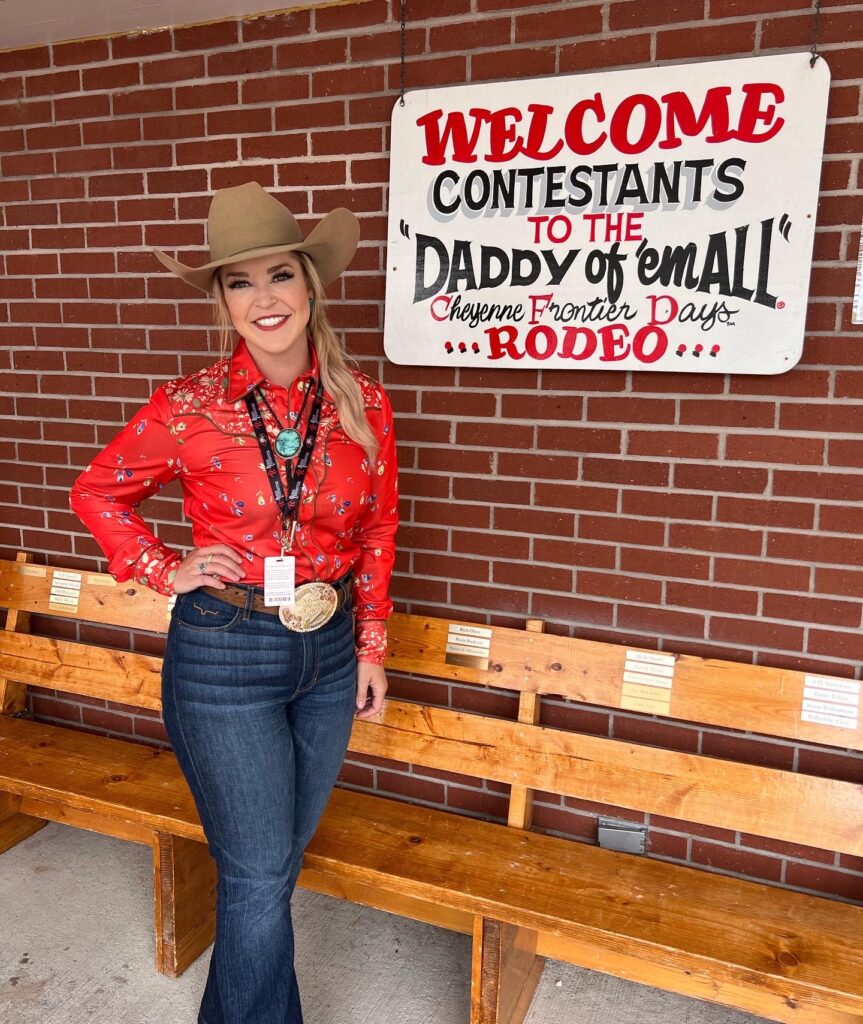
Cowboy Lifestyle Magazine
This article with Farmer Froberg was created for the Spring Issue of the Cowboy Lifestyle Magazine which was released in April 2023. You can catch this article and many more by checking out the full issue. For more information on Cowboy Lifestyle Magazine, visit the website here.
Last Updated on 08/16/2023 by Hannah Crandall
CLN Community Sponsor


